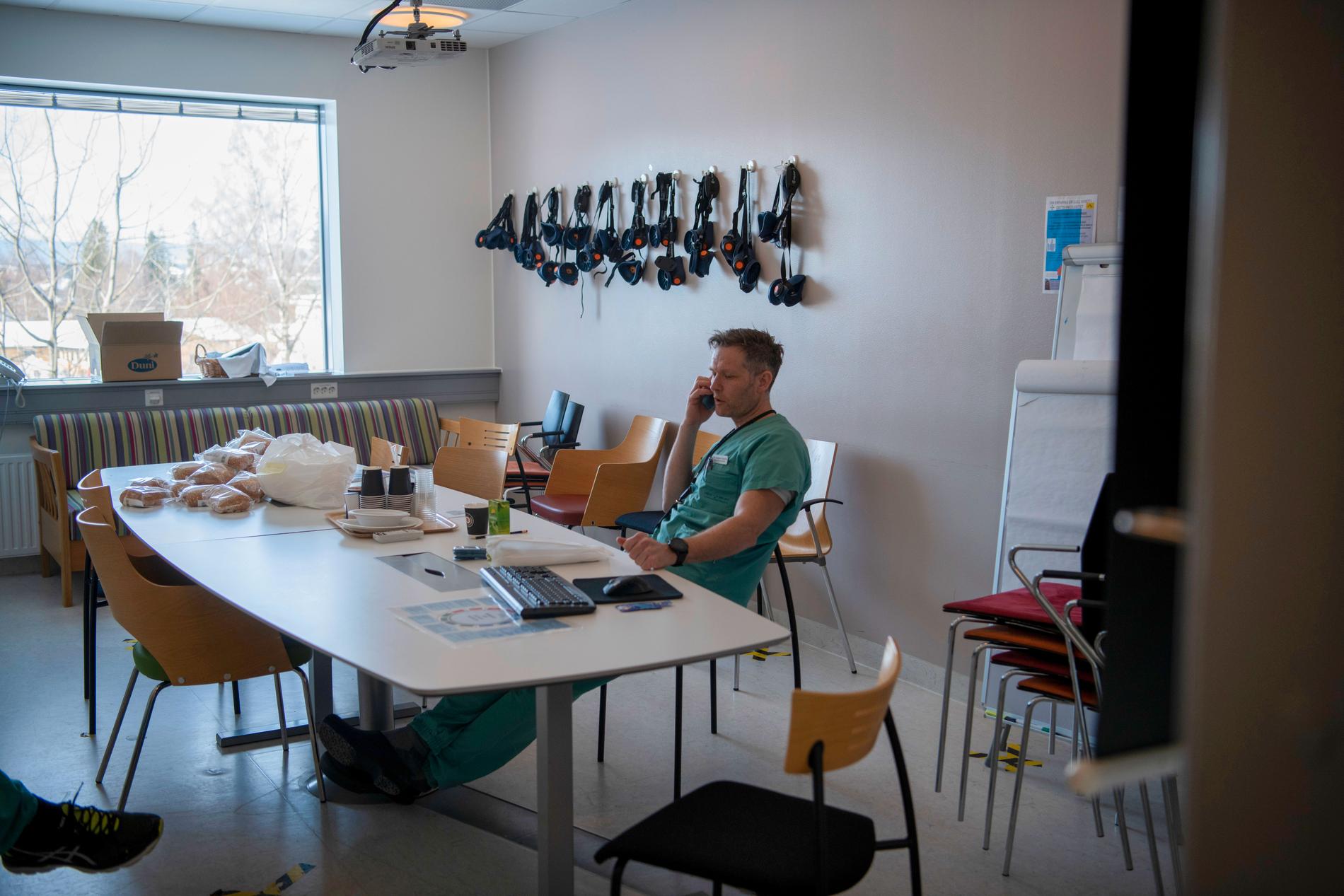– We are at the breaking point for whether we can manage to maintain sound operations if this increases. There is already an enormous work pressure for the employees.
–
That’s what Ole Kristian Fossum says. He is the section chief physician and unit leader at the intensive care unit at Akershus University Hospital and is completely desperate.
It is completely full on the intensive care unit, but also on the records that the hospital uses to relieve – medical monitoring and postoperative. The employees are exhausted, he says.
– We really need national authorities to come on the scene, because this is not being fought well enough locally. I have no idea why they have waited so long, he says to VG.
Ahus has responded by increasing the number of intensive care units from ten to twelve at Nordbyhagen Hospital, but also with an extra intensive care unit at the hospital in Kongsvinger. If this continues to increase, the hospital must use the operating rooms at the Day Surgery Center for intensive care and monitoring.
– We have seen this for quite some time, but now we are very hard pressed. This applies to all intensive care and monitoring departments with us, says Fossum.
It has been set this week record in the number of cases so far in the pandemic. On Friday at 11.00, the government has called a press conference on the corona situation. Minister of Health Ingvild Kjerkol and Minister of Justice Emilie Enger Mehl will participate, in addition to Assistant Director of Health Espen Nakstad and NIPH Director Camilla Stoltenberg.
Screaming
– What we see is that we have a fully reopened society, so there is a lot of infection – also among the employees in the hospital. Ahus has a lot of covid patients, but also a lot of other things that require intensive care, says the section chief.
The level of covid patients who need intensive care has since the spring been well above the 2020 level.
– We also see more patients who come in for other things, who are also corona infected without having developed severe covid. It requires a lot of resources because we have to isolate them and that gives us extra pressure, he adds.
Still, the Christmas table season – with what it entails of large gatherings – has not fully kicked in. It also does not have the flu season.
– I am crying out that the health authorities must now introduce measures. It must come from NIPH and the government nationally. It does not hold with local measures, Fossum continues.
– We need at least a bandage and that people keep the meter to reduce the infection in society. Beyond that, someone else with a broader overview of society and decision-making authority than me can assess what measures are necessary.
Must free up capacity
Several health trusts in the health region South-East now see that intensive care capacity is threatened. At Oslo University Hospital they are now canceling operations of all kinds to free intensive care nurses to work with the very sickest covid patients.
– We are at the breaking point for whether we can manage to maintain sound operations if this increases. There is already an enormous work pressure for the employees, says Fossum about the situation at Ahus.
Within the health region, they tend to draw on each other’s resources – such as that intensive care patients can be sent between hospitals. But now it’s full almost everywhere.
– We actually have very little preparedness to go on, because the hospitals are operated so marginally. Much of our preparedness is baked into planned operations. Then a lot of important surgery must be postponed to try to free up personnel for increased intensive capacity and this will have major consequences for the patients, he concludes.
To VG on Wednesday, Line Vold, who is head of department at the National Institute of Public Health (NIPH), said that the increase in the number of infected and the increase in hospital admissions has happened somewhat faster than they had hoped for.
– It is a development we do not like, and a development we want to slow down and turn around, she said, among other things.
Assistant health director Espen Nakstad says that the health authorities are now working to consider how the trend can be reversed.
When asked by VG on Wednesday about what will happen at the hospitals in the future if the increase in the number of admissions increases as much as in FHI’s projections, he answered the following:
– Then more planned operations and treatment will be postponed, probably for quite a long time, and the pandemic will have greater consequences for those patients who need health care who do not have covid-19.
–


